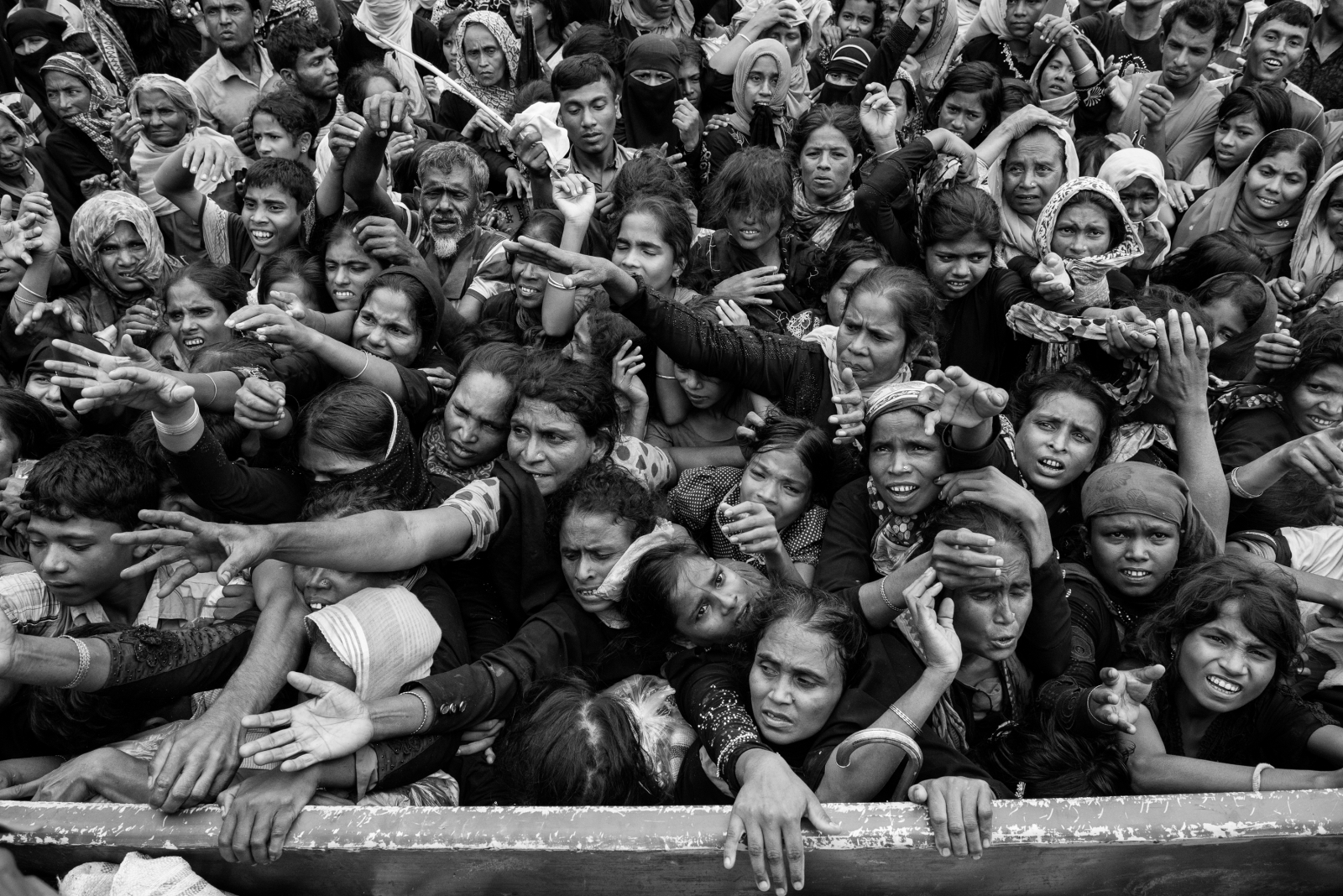Myanmar Rohingya crisis: Mass graves with corpses 'burned away by acid' unearthed
KEY POINTS
- Fresh discovery provides more evidence of ethnic cleansing in Rakhine state.
- "Cover up, collusion and calumny the name of the game in Myanmar from day one."
Five mass graves have been unearthed in Myanmar's Rakhine state, where authorities have been accused of ordering soldiers to gang-rape Rohingya Muslims before burning them to death.
Dozens of corpses were found in the graves in the village of Gu Dar Pyin and surrounding areas, an investigation by Associated Press (AP) revealed after interviewing more than two dozen survivors in Bangladesh refugee camps and viewing time-stamped videos.
The faces of the people in the graves had been burned off with acid and blasted by bullets, AP said.
The discovery was the latest to suggest that Myanmar's security forces were continuing to purge Rohingya Muslims in what the UN has described as a "textbook example of ethnic cleansing".
Human rights activists said that thousands of Rohingya have been killed since violence broke out in Rakhine state in the far north-west of Myanmar in late August. A total of six mass graves have been found in the region, but activists have warned that there may be more which have not yet been reported on because of limited access.
Myanmar's army has strongly denied allegations of mass rapes and extrajudicial killings against the Rohingya.
The government in Naypyidaw claimed that massacres such as the one in Gu Dar Pyin had not happened. It has only acknowledged the existence of one mass grave, in the village of Inn Din, saying that it contained 10 "terrorists".
The country's leader Aung San Suu Kyi has faced growing global condemnation for turning a blind eye to the violence.
Phil Robertson, HRW deputy Asia director, told IBTimes UK that the international community had to hold Myanmar's government accountable for its persecution of the Rohingyas.
"What's shocking is the passivity of the US, Canada, the EU and its member states and other governments to fully commit to a strategy of pursuing international accountability for these atrocities up to the highest levels of Myanmar's military," he said.
Robertson said the reports from Gu Dar Pyin village that "soldiers prepared acid in order to disfigure faces and bodies and erase fingerprints" was of particular concern. It revealed, he said, an army "strategy to evade accountability".
"This shows a level of pre-planning and intent that may move the international discussions of what happened towards findings of genocide, as the UN Special Rapporteur Yanghee Lee is already intimating," he said.
The government was "scrambling to back the military in denying all culpability in crimes that certainly constitute crimes against humanity," he added.
"Cover-up, collusion, and calumny have been the name of the game in Myanmar from day one [of the conflict]."



























